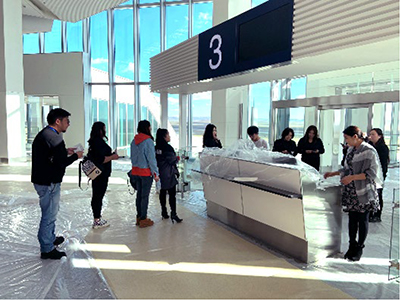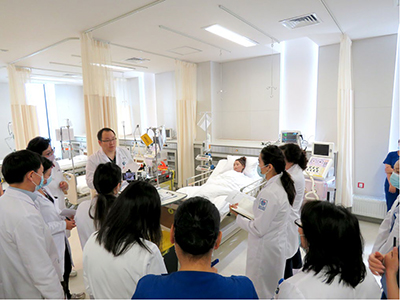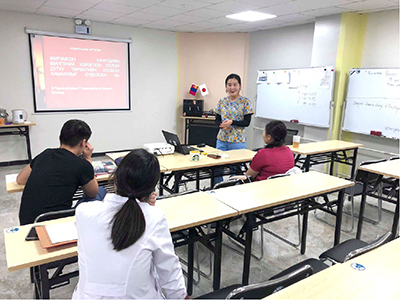FY2020 MOFA ODA Evaluation Results
Evaluation of Japan’s ODA to Mongolia
| Chief Evaluator | Prof. HAYASHI Kaoru Faculty of International Studies, Bunkyo University |
| Advisor | Prof. MINATO Kunio Faculty of Regional Collaboration, Kochi University |
| Consultant | Foundation for Advanced Studies on International Development |
| Evaluation Period | FY2010 to FY2019 |
| Period of the Evaluation Study | August 2020 to March 2021 |
| Field Survey Country | Mongolia (remote survey conducted online) |
Background, Objectives, and Scope of the Evaluation
Mongolia is a geopolitically important country located between two superpowers—China and Russia. Its stable growth and development are important not only in contributing to the stability and prosperity of the region, but also in enhancing relations with Japan.
This evaluation assesses Japan’s ODA policies toward Mongolia over the past ten years (FY2010-2019) with the main objectives of obtaining recommendations and learning lessons for the formulation and implementation of future Japanese ODA policies toward Mongolia, as well as ensuring public accountability by publishing the evaluation results.
Summary of Evaluation Results
● Development Viewpoints
(1) Relevance of Policies
The evaluation team confirmed that Japan’s ODA policies toward Mongolia are consistent with development policies and needs in Mongolia, Japan’s high-level policies, and international priority issues, and that they mutually complement the assistance policies of other donors. It also confirmed that while there were examples of Japan making effective use of its comparative advantages, such as its support for air-pollution control, Japan’s assistance to Mongolia was determined with comprehensive consideration of differentiation from other donors and development needs and implementation structures in Mongolia.
(Evaluation Result: Highly Satisfactory = )
(2) Effectiveness of Results
Japan’s ODA accounted for 47.7% of the total bilateral assistance to Mongolia over the nine-year period from 2010 to 2018. Japan has therefore contributed significantly to development in Mongolia as a top donor.
The evaluation team confirmed that results were produced with regard to improvement of Mongolia’s fiscal capabilities, establishment of a foundation for industrial diversification, efforts to address urban environmental issues, and promotion of the social participation of individuals with disabilities through assistance targeting each development issue in Japan’s Country Development Cooperation Policy for Mongolia. Although some of the initial objectives have not yet been achieved, overall, Japan’s assistance to Mongolia had a large impact.
(Evaluation Result: Satisfactory = )
(3) Appropriateness of Processes
Japan’s ODA policies toward Mongolia are formulated appropriately by MOFA with adequate reflection of Mongolia’s development needs and in conformity with the prescribed procedure. In terms of the implementation of assistance, the evaluation team confirmed that there was close communication with Mongolian government agencies and international organizations on a regular basis and that approaches were adopted that enhanced the effectiveness of assistance, such as coordination with other donors on technical cooperation projects and coordination among multiple projects or between schemes. Furthermore, the Embassy of Japan in Mongolia and the JICA Mongolia Office followed through swiftly and attentively when any problems arose during project implementation.
(Evaluation Result: Highly Satisfactory = )
(Note) Ratings: Highly Satisfactory = ; Satisfactory = ; Partially Unsatisfactory = ; Unsatisfactory =
● Diplomatic Viewpoints
(1) Diplomatic Importance
Japan’s ODA to Mongolia has the potential to contribute to the improvement of the security environment in the Asia-Pacific region, the strengthening of an international order based on universal values and rules, the improvement of global security, and therefore the construction of a peaceful, stable, and prosperous international community. Maintaining a longterm, stable cooperative relationship with Mongolia is also important from the perspective of Japan’s resource security. Thus, ODA to Mongolia is of great significance.
At nearly all past bilateral summit meetings and foreign ministerial conferences, the government of Mongolia has expressed gratitude for Japan’s ODA. This shows that Japan’s ODA to Mongolia is an important tool for strengthening the bilateral relationship between the two countries.
(2) Diplomatic Impact
It is fair to say that Japan’s ODA to Mongolia has had a level of impact on Mongolia’s support for Japan’s position in the international community, the strengthening of Japan’s presence in Mongolia, the advancement of Japanese enterprises into Mongolia and strengthening of economic relations, the promotion of friendly ties, and a better understanding of Japan by Mongolian people.
Recommendations Based on Evaluation Results
(1) Formulation of Clearer Regional Development Strategies and Rolling Plans for Sustainable Economic Growth and Stable Social Development in Mongolia
In the next revision of Japan’s Country Development Cooperation Policy, more explicit regional development strategies and Rolling Plans should be formulated for the fiveyear policymaking span in order to enhance the effectiveness of assistance to achieve sustainable economic growth and stable social development in Mongolia.
(2) Enhancement of Measures to Reduce Risks Posed by Frequent Personnel Reassignment
During project implementation, the evaluation team observed cases in which frequent personnel reassignment and career changes among Mongolian staff had adverse effects on the progress of the project or the institutionalization of outcomes, such as by delaying the project, necessitating fresh personnel training, or leading to the loss of transferred technologies. Before implementing ODA projects, informationsharing mechanisms should be introduced within the implementing organizations on the Mongolian side.
(3) Enhancement of Measures for Countries with Frequent Government Reorganization
When implementing ODA projects in Mongolia, it is important to be fully aware of the country’s tendency toward frequent government reorganization. It would be useful to gather information regarding possible effects on counterpart organizations and prepare multiple countermeasures ahead of elections. It would also be more effective to obtain information and advice from experts who have experienced past postelection government reorganizations.
(4) Clarification of the Division of Roles in Projects Involving Multiple Government Ministries/Agencies
Before implementing projects involving multiple government ministries or agencies, it is desirable to understand the roles of the relevant ministries and agencies, confirm that the necessary budget and personnel can be secured, and set aside opportunities for all parties involved to exchange views and share information. It would be useful to clarify the responsibilities of each ministry or agency in the project while considering the conventions of Mongolia and the administrative jurisdictions of the ministries/agencies.

New Ulaanbaatar International Airport Operating Project: automated check-in training (Courtesy of NUBIA LLC)

Simulation at Mongolia-Japan Teaching Hospital (MJTH) before opening of the ICU

Medical-intern-led training session at Orkhon Province’s Regional Diagnostic and Treatment Center (RDTC)
